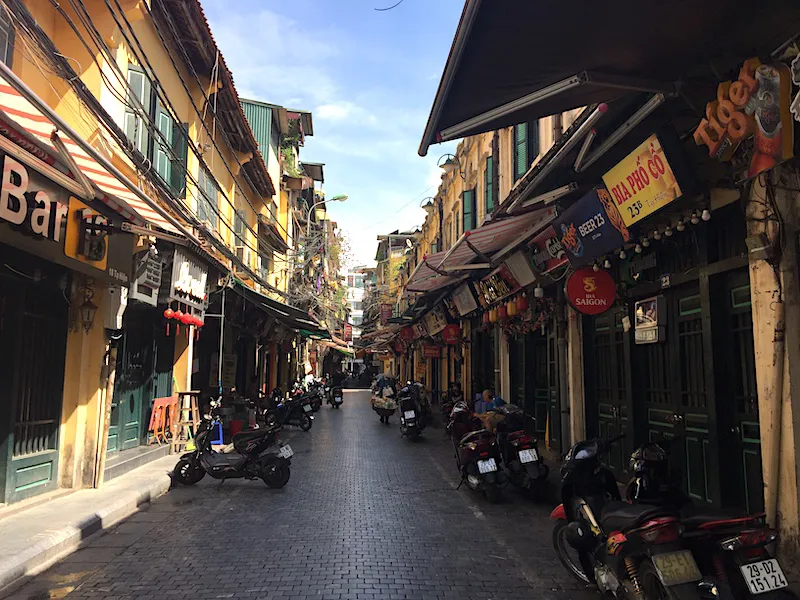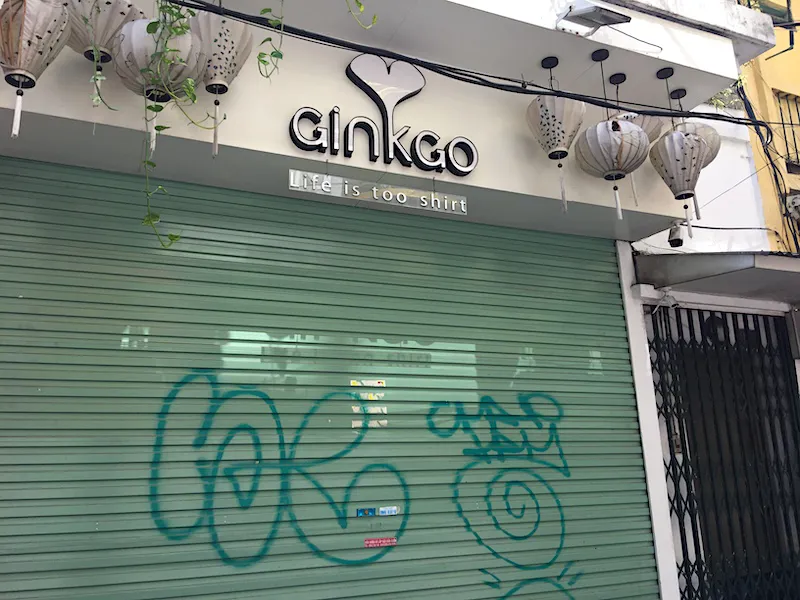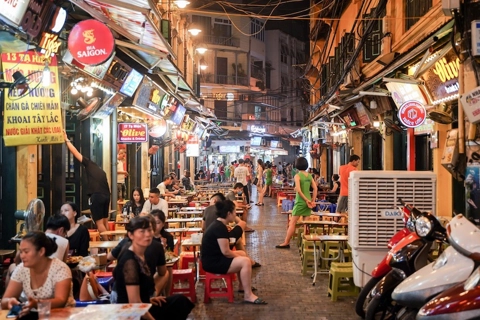Covid-19 continues to impact Hanoi’s retail property market
It's time for negotiating deals between landlords and tenants.
The resurgence of Covid-19 is progressing complicatedly and expected to exert unpredictable impacts on the real estate market, especially for the retail segment, in Hanoi, according to local insiders.
| Covid-19 continues to impact Hanoi’s retail property market. Photo: Nhat Minh |
Crippling blow
As the retail space market is directly affected by the pandemic, many premises have been returned to their owners and seen their rents reduced by 30%-50% compared to the pre-pandemic period, according to the Ministry of Construction.
Rental rates of townhouses and private houses continued to fall in many districts in the second quarter (Q2) this year as the number of vacant spaces grew gradually, according to the ministry. Many shops located on bustling streets such as Hang Gai, Hang Bo, Hang Be, Hang Bac had to shut down. In the high streets of Hang Luoc, Hang Duong, Hang Bong and Hang Da, stores are hanging 'for-lease' banners.
Nguyen Hong Van, JLL's Hanoi market director, viewed townhouses for rental as the first and longest affected segment in the market since the pandemic broke out in Q1. In Q2, the market started its recovery slightly, but then the second wave of the pandemic came and the market plunged again. The local landlords rolled out supportive measures in the short term, however, in many cases, the tenants cannot survive the pandemic impacts.
Van assessed that the rental space in prime locations is still much sought after. However, in the short term, large tenants will consider which premises to keep and which to leave to ensure their financial sources. As a result, many large spaces will be returned.
Meanwhile, small businesses are forced to close their stores completely instead of continuing to operate without making up for their revenues.
Time to screen adjustments
| A closed store. Photo: Nhat Minh |
Van from JLL said that the risk of loss and pressure of cash flow are the biggest concerns for investors in leasing business premises in the Old Quarter. Many prime locations, which had never been empty in the past, are hanging “for rent” signs. This is an opportunity for retailers to negotiate rental rates for good premises together with other commercial conditions such as deposits, rental payment terms.
Le Tuan Binh, head of commercial leasing at Savills Hanoi, recognized that it is an opportunity for investors to choose a suitable premise with a reasonable price, especially for units with good finances and a sustainable business model.
In contrast, business models that are susceptible to the pandemic such as food & beverage, entertainment, and entities depending on foreign supply chain will be at high risk.
Binh from Savills suggested that the hotel and retail markets in the Old Quarter need to expand to more segments such as domestic and foreign residents instead of waiting for traditional customers to return. It is somehow a way to increase supporting sources for survival and possibly a thrust for future recovery, he added.
Meanwhile, Van from JLL Vietnam predicts that the premises in the Old Quarter will face many challenges in at least one or two years ahead. Rents for townhouses in Hanoi in general and in the Old Quarter in particular will definitely be reduced. A new rent which would be at 70-80% of that of the peak time is expected.
The structure and the terms of the lease will also be changed, and the pandemic factor will be more clearly described in the terms of the lease contract to prevent similar circumstances from occurring in the future, Van said.














